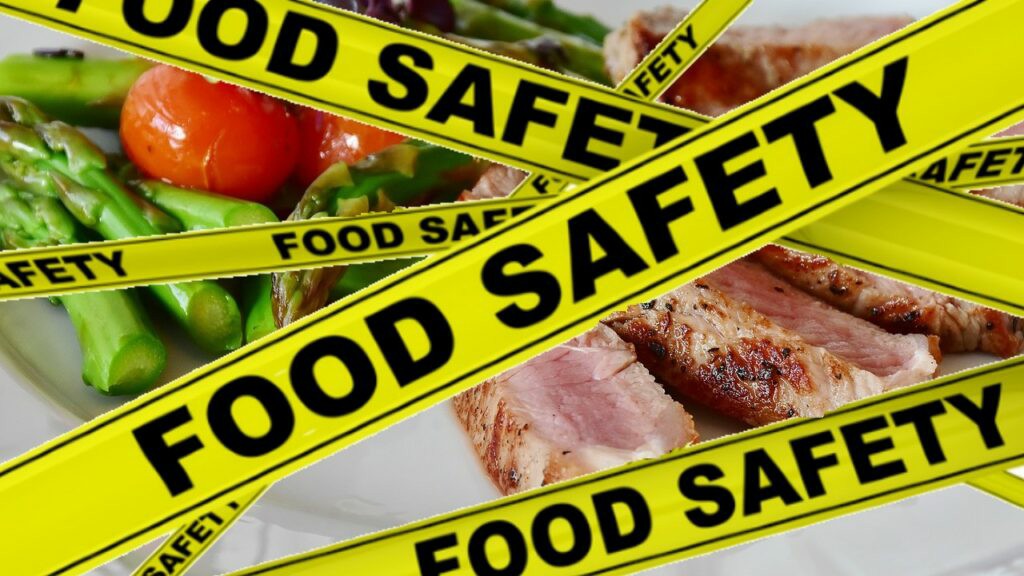HACCP Certification: The Key to Food Safety & Compliance for Irish Businesses in Dublin, Cork, Galway, and Beyond
In an era where food safety is paramount, HACCP (Hazard Analysis Critical Control Point) certification has emerged as a cornerstone for food businesses in Ireland. Whether you operate a bustling restaurant in Dublin, a catering service in Cork, or a food shop in Galway, understanding and implementing HACCP principles is not just beneficial—it's a necessity.
What is HACCP? Understanding Its Role in Food Hygiene & Risk Management
HACCP stands for Hazard Analysis Critical Control Point. This systematic approach helps identify, evaluate, and control food safety hazards. It is designed to prevent hazards rather than inspect finished products. The core of HACCP involves the following principles:
- Conduct a Hazard Analysis – Identify potential hazards that could occur in the food process.
- Determine Critical Control Points (CCPs) – Establish points in the process where controls can be applied to prevent hazards.
- Establish Critical Limits – Set acceptable limits for each CCP.
- Monitor CCPs – Implement procedures for monitoring control points.
- Corrective Actions – Identify actions to take when monitoring shows a deviation from a critical limit.
- Verification Procedures – Validate that the HACCP plan is effective.
- Record Keeping and Documentation – Maintain records to demonstrate compliance and safety practices.
HACCP Training Benefits: How It Ensures Food Safety Standards in Ireland
Enrolling in HACCP training courses is essential for food business owners, restaurant managers, and hospitality professionals. Here are some benefits of undergoing HACCP training:
- Compliance with Irish and EU Regulations: HACCP training helps businesses align with food safety regulations set forth by both Irish authorities and the EU.
- Enhanced Food Safety: Training equips staff with the knowledge needed to maintain high food hygiene standards, significantly reducing health risks related to food contamination.
- Improved Reputation: A HACCP certification demonstrates your commitment to food safety, fostering trust and loyalty among customers.
- Reduced Risk of Foodborne Illness: By implementing HACCP principles, your business can proactively manage food safety risks.
Step-by-Step Guide to Getting HACCP Certification for Your Business
Obtaining HACCP certification can seem daunting, but it can be streamlined into a few key steps:
- Choose a Recognized Training Provider: Select a training organization offering accredited HACCP training courses.
- Complete the Training: Participate in HACCP Level 1 and 2 training, focusing on practical applications of HACCP principles.
- Develop a HACCP Plan: Tailor a HACCP plan specific to your business operations, identifying potential hazards and critical control points.
- Implement Monitoring Procedures: Set up processes for monitoring CCPs and ensure staff is trained on these protocols.
- Documentation and Record Keeping: Keep thorough documentation of your HACCP plan and monitoring activities.
- Request an Audit: Have your HACCP plan reviewed and audited by an external certifying body.
Comparing Online vs. In-Person HACCP Training Courses
In today's fast-paced environment, many businesses are opting for online HACCP training courses due to their convenience and flexibility. Here’s a comparison:
- Online HACCP Training: Flexible scheduling, self-paced learning, and often more affordable.
- In-Person HACCP Training: Provides hands-on experience and immediate interaction with instructors, which some learners may prefer.
Common HACCP Violations and How to Prevent Them
Even the best food establishments can make mistakes. Here are some common HACCP violations:
- Lack of proper monitoring of CCPs
- Failure to keep accurate records
- Inadequate corrective actions when deviations occur
The key is to ensure that all staff is well-trained and understands the importance of compliance with HACCP practices. Regular audits and refresher training can also help prevent these violations.
How HACCP Compliance Strengthens Business Reputation and Customer Trust
HACCP compliance not only meets regulatory standards but also builds customer trust. Consumers today are more aware of food safety issues and prefer businesses that prioritize their welfare. By obtaining HACCP certification, your establishment can highlight its commitment to safe food practices, attracting more customers and enhancing loyalty.
How to Conduct a HACCP Audit for Your Food Business
A HACCP audit is a comprehensive assessment that evaluates the effectiveness of your HACCP plan. To conduct an audit:
- Review Documentation: Ensure all HACCP-related documents are up to date.
- Inspect Operations: Observe the food production process for compliance with your HACCP plan.
- Interview Staff: Speak with employees to gauge their understanding of HACCP principles and procedures.
- Recommend Improvements: Provide actionable insights based on your findings to enhance your HACCP system.
Conclusion & Call to Action
HACCP certification is essential for food businesses across Ireland, especially in bustling cities like Dublin, Cork, Galway, and beyond. Investing in HACCP training not only ensures compliance with food safety regulations but also protects your customers and enhances your business's reputation. Don't leave food safety to chance—
Enroll in our HACCP training courses today! For inquiries, contact us at [email protected].



 349,500 Offered Certificates
349,500 Offered Certificates
 24/7 Online Training
24/7 Online Training
 Money Back Guarantee
Money Back Guarantee
 Fully Accredited Courses
Fully Accredited Courses
